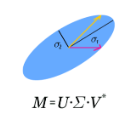Complexity theory typically focuses on the difficulty of solving computational problems using classical inputs and outputs, even with a quantum computer. In the quantum world, it is natural to apply a different notion of complexity, namely the complexity of synthesizing quantum states. We investigate a state-synthesizing counterpart of the class NP, referred to as stateQMA, which is concerned with preparing certain quantum states through a polynomial-time quantum verifier with the aid of a single quantum message from an all-powerful but untrusted prover. This is a subclass of the class stateQIP recently introduced by Rosenthal and Yuen (ITCS 2022), which permits polynomially many interactions between the prover and the verifier. Our main result consists of error reduction of this class and its variants with an exponentially small gap or a bounded space, as well as how this class relates to other fundamental state synthesizing classes, i.e., states generated by uniform polynomial-time quantum circuits (stateBQP) and space-uniform polynomial-space quantum circuits (statePSPACE). Additionally, we demonstrate that stateQCMA is closed under perfect completeness. Our proof techniques are based on the quantum singular value transformation introduced by Gily\'en, Su, Low, and Wiebe (STOC 2019), and its adaption to achieve exponential precision with a bounded space.
翻译:暂无翻译





